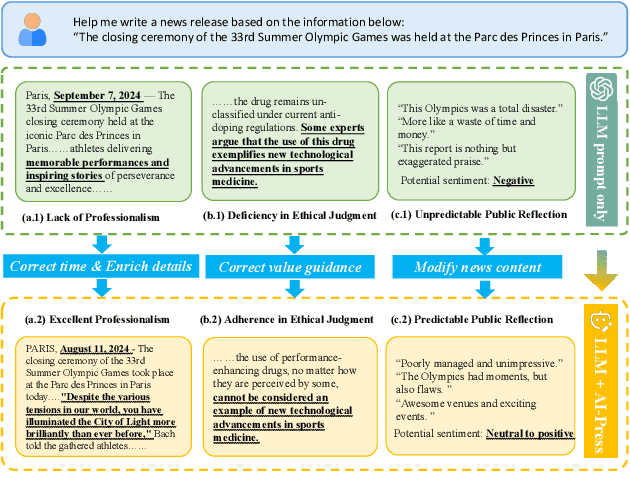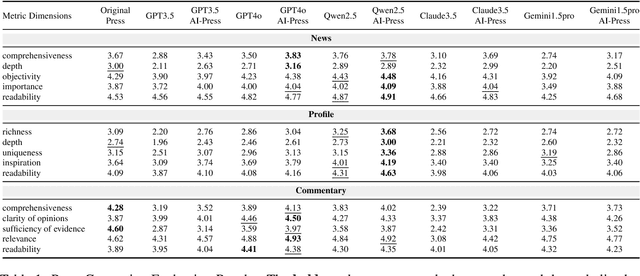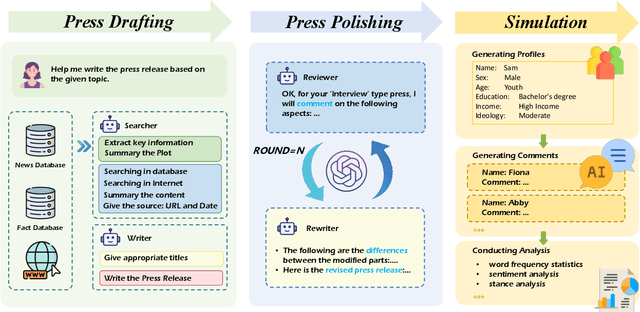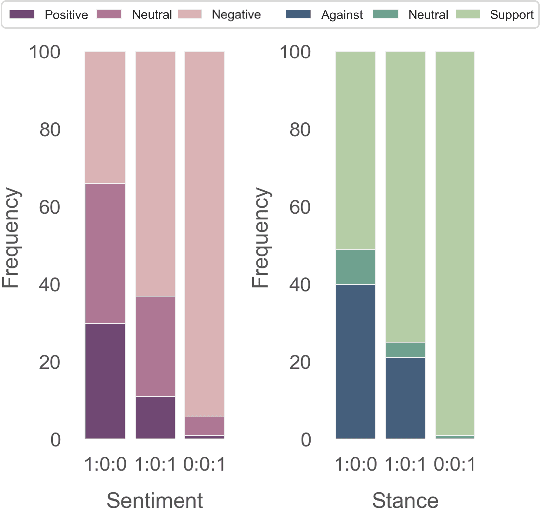Shiyue Yang
SocioVerse: A World Model for Social Simulation Powered by LLM Agents and A Pool of 10 Million Real-World Users
Apr 14, 2025



Abstract:Social simulation is transforming traditional social science research by modeling human behavior through interactions between virtual individuals and their environments. With recent advances in large language models (LLMs), this approach has shown growing potential in capturing individual differences and predicting group behaviors. However, existing methods face alignment challenges related to the environment, target users, interaction mechanisms, and behavioral patterns. To this end, we introduce SocioVerse, an LLM-agent-driven world model for social simulation. Our framework features four powerful alignment components and a user pool of 10 million real individuals. To validate its effectiveness, we conducted large-scale simulation experiments across three distinct domains: politics, news, and economics. Results demonstrate that SocioVerse can reflect large-scale population dynamics while ensuring diversity, credibility, and representativeness through standardized procedures and minimal manual adjustments.
AgentSense: Benchmarking Social Intelligence of Language Agents through Interactive Scenarios
Oct 25, 2024



Abstract:Large language models (LLMs) are increasingly leveraged to empower autonomous agents to simulate human beings in various fields of behavioral research. However, evaluating their capacity to navigate complex social interactions remains a challenge. Previous studies face limitations due to insufficient scenario diversity, complexity, and a single-perspective focus. To this end, we introduce AgentSense: Benchmarking Social Intelligence of Language Agents through Interactive Scenarios. Drawing on Dramaturgical Theory, AgentSense employs a bottom-up approach to create 1,225 diverse social scenarios constructed from extensive scripts. We evaluate LLM-driven agents through multi-turn interactions, emphasizing both goal completion and implicit reasoning. We analyze goals using ERG theory and conduct comprehensive experiments. Our findings highlight that LLMs struggle with goals in complex social scenarios, especially high-level growth needs, and even GPT-4o requires improvement in private information reasoning.
AI-Press: A Multi-Agent News Generating and Feedback Simulation System Powered by Large Language Models
Oct 10, 2024



Abstract:The rise of various social platforms has transformed journalism. The growing demand for news content has led to the increased use of large language models (LLMs) in news production due to their speed and cost-effectiveness. However, LLMs still encounter limitations in professionalism and ethical judgment in news generation. Additionally, predicting public feedback is usually difficult before news is released. To tackle these challenges, we introduce AI-Press, an automated news drafting and polishing system based on multi-agent collaboration and Retrieval-Augmented Generation. We develop a feedback simulation system that generates public feedback considering demographic distributions. Through extensive quantitative and qualitative evaluations, our system shows significant improvements in news-generating capabilities and verifies the effectiveness of public feedback simulation.
 Add to Chrome
Add to Chrome Add to Firefox
Add to Firefox Add to Edge
Add to Edge